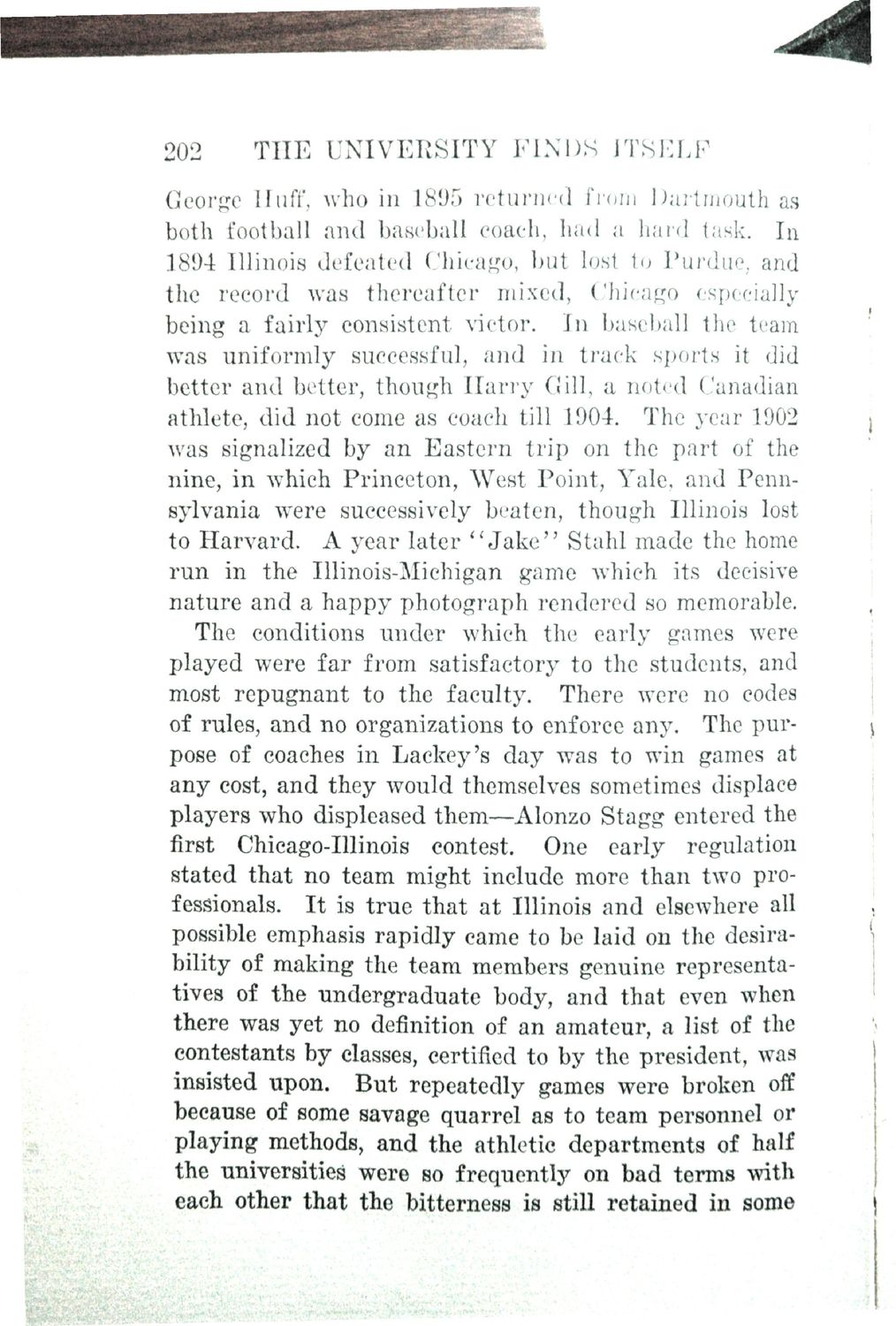| |
| |
Caption: Book - History of the University (Nevins)
This is a reduced-resolution page image for fast online browsing.

EXTRACTED TEXT FROM PAGE:
202 THE UNIVERSITY FINDS ITSELF George Huff, who in 1895 returned from Dartmouth as both football and baseball coach, had a hard task. In 1894 Illinois defeated Chicago, but lost to Purdue, and the record was thereafter mixed, Chicago especially being a fairly consistent victor. In baseball the team was uniformly successful, and in track sports it did better and better, though Harry Gill, a noted Canadian athlete, did not come as coach till 1904. The year 1902 was signalized by an Eastern trip on the part of the nine, in which Princeton, West Point, Yale, and Pennsylvania were successively beaten, though Illinois lost to Harvard. A year later " J a k e " Stahl made the home run in the Illinois-Michigan game which its decisive nature and a happy photograph rendered so memorable. The conditions under which the early games were played were far from satisfactory to the students, and most repugnant to the faculty. There were no codes of rules, and no organizations to enforce any. The purpose of coaches in Lackey's day was to win games at any cost, and they would themselves sometimes displace players who displeased them—Alonzo Stagg entered the first Chicago-Illinois contest. One early regulation stated that no team might include more than two professionals. It is true that at Illinois and elsewhere all possible emphasis rapidly came to be laid on the desirability of making the team members genuine representatives of the undergraduate body, and that even when there was yet no definition of an amateur, a list of the contestants by classes, certified to by the president, was insisted upon. But repeatedly games were broken off because of some savage quarrel as to team personnel or playing methods, and the athletic departments of half the universities were so frequently on bad terms with each other that the bitterness is still retained in some
| |